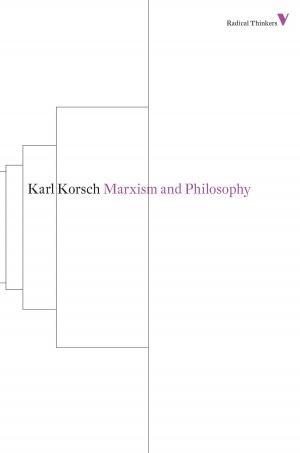| Author: | Maurice Godelier | ISBN: | 9781844678952 |
| Publisher: | Verso Books | Publication: | March 3, 2012 |
| Imprint: | Verso | Language: | English |
| Author: | Maurice Godelier |
| ISBN: | 9781844678952 |
| Publisher: | Verso Books |
| Publication: | March 3, 2012 |
| Imprint: | Verso |
| Language: | English |
With marriage in decline, divorce on the rise, the demise of the nuclear family, and the increase in marriages and adoptions among same-sex partners, it is clear that the structures of kinship in the modern West are in a state of flux.
In The Metamorphoses of Kinship, the world-renowned anthropologist Maurice Godelier contextualizes these developments, surveying the accumulated experience of humanity with regard to such phenomena as the organization of lines of descent, sexuality and sexual prohibitions. In parallel, Godelier studies the evolution of Western conjugal and familial traditions from their roots in the nineteenth century to the present. The conclusion he draws is that it is never the case that a man and a woman are sufficient on their own to raise a child, and nowhere are relations of kinship or the family the keystone of society.
Godelier argues that the changes of the last thirty years do not herald the disappearance or death agony of kinship, but rather its remarkable metamorphosis—one that, ironically, is bringing us closer to the “traditional” societies studied by ethnologists.
With marriage in decline, divorce on the rise, the demise of the nuclear family, and the increase in marriages and adoptions among same-sex partners, it is clear that the structures of kinship in the modern West are in a state of flux.
In The Metamorphoses of Kinship, the world-renowned anthropologist Maurice Godelier contextualizes these developments, surveying the accumulated experience of humanity with regard to such phenomena as the organization of lines of descent, sexuality and sexual prohibitions. In parallel, Godelier studies the evolution of Western conjugal and familial traditions from their roots in the nineteenth century to the present. The conclusion he draws is that it is never the case that a man and a woman are sufficient on their own to raise a child, and nowhere are relations of kinship or the family the keystone of society.
Godelier argues that the changes of the last thirty years do not herald the disappearance or death agony of kinship, but rather its remarkable metamorphosis—one that, ironically, is bringing us closer to the “traditional” societies studied by ethnologists.















